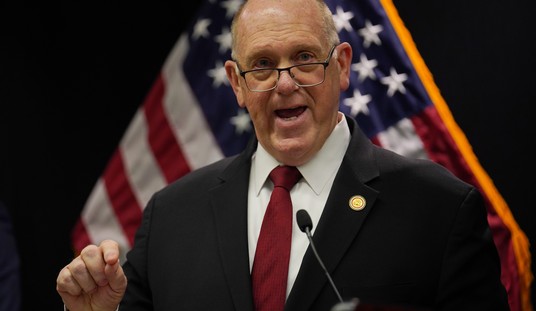This just smacks of the same mentality that inspired climate change activists to say global warming deniers should be purged from meteorology. Kari Mari Norgaard, a professor of sociology and environmental studies at the University of Oregon, suggests that resistance to the threat of climate change at individual and societal levels must be “recognized and treated” before real action can be taken to effectively address the problem global warming poses. From a University of Oregon press release:
“Climate change poses a massive threat to our present social, economic and political order. From a sociological perspective, resistance to change is to be expected,” she said. “People are individually and collectively habituated to the ways we act and think. This habituation must be recognized and simultaneously addressed at the individual, cultural and societal level — how we think the world works and how we think it should work.” …
At the personal level, climate-change information raises fear about the future, a sense of helplessness and guilt. These emotions clash with individual — and often national — identity, sense of self-efficacy and the need for basic security and survival. In small groups, interactions often subvert political conversations and/or submerge the visibility of climate-change issues. At the macro level, or society at large, the co-authors point to an absence of serious discussion of climate change within U.S. Congressional hearings and in media coverage.
In many discussions in the last 30 years, climate change has been seen as either a hoax or fixable with minimal political or economic intervention, said Norgaard, author of the book “Living in Denial: Climate Change, Emotions and Everyday Life” (2011, MIT Press). “This kind of cultural resistance to very significant social threat is something that we would expect in any society facing a massive threat,” she said. The discussion, she said, is comparable to what happened with challenges to racism or slavery in the U.S. South.
Norgaard clearly assumes that climate change science is settled — but it still isn’t. Just three days ago, for example, Princeton physics professor William Happer wrote an article for The Wall Street Journal under the headline, “Global warming models are wrong again.” Here’s a bit of what he had to say:
It is easy to be confused about climate, because we are constantly being warned about the horrible things that will happen or are already happening as a result of mankind’s use of fossil fuels. But these ominous predictions are based on computer models. It is important to distinguish between what the climate is actually doing and what computer models predict. The observed response of the climate to more CO2 is not in good agreement with model predictions.
We need high-quality climate science because of the importance of climate to mankind. But we should also remember the description of how science works by the late, great physicist, Richard Feynman:
“In general we look for a new law by the following process. First we guess it. Then we compute the consequences of the guess to see what would be implied if this law that we guessed is right. Then we compare the result of the computation to nature, with experiment or experience; compare it directly with observation, to see if it works. If it disagrees with experiment it is wrong.”
The most important component of climate science is careful, long-term observations of climate-related phenomena, from space, from land, and in the oceans. If observations do not support code predictions—like more extreme weather, or rapidly rising global temperatures—Feynman has told us what conclusions to draw about the theory.
Norgaard is surely right that there are plenty of unscientific reasons to wish to think climate change does not pose the threat some scientists say it does. An acceptance of that hypothesized threat might impose certain obligations — to, say, purchase a low emissions vehicle — that a person might wish to avoid. Yet, there are surely plenty of unscientific reasons to wish to think climate change does pose the threat some scientists say it does. A desire for the power and latitude to regulate greenhouse gas emissions, for example, might motivate some politicians to accept climate science that they would not otherwise.
In charged debates like this one, it’s not helpful to use rhetoric that suggests dissenters are diseased. Far better to patiently engage in respectful discussion.








Join the conversation as a VIP Member